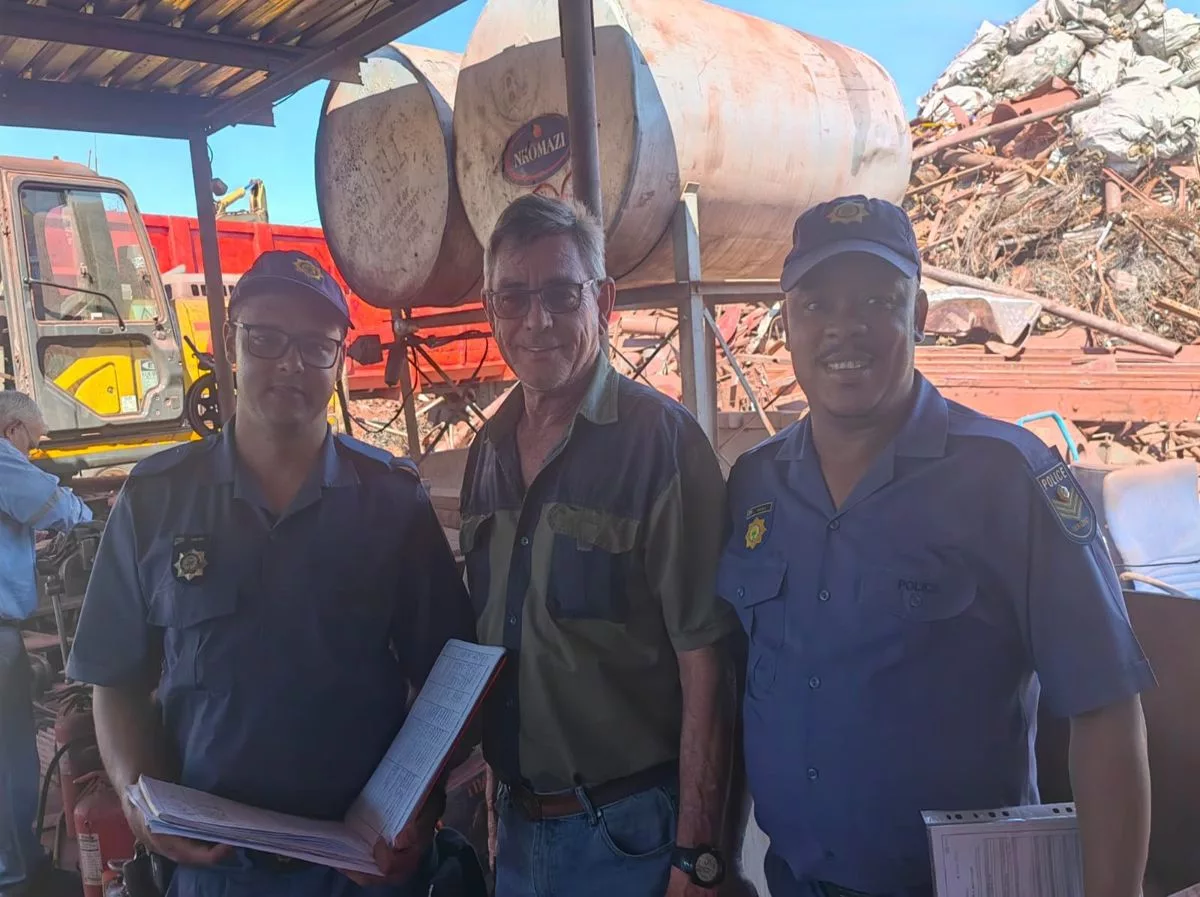Deputy Minister of Transport, Lisa Mangcu, led a collaborative campaign in Randfontein to promote a cleaner environment, road safety, and offer valuable information to the community. The Local Municipality, the Road Accident Fund, the Road Traffic Infringement Agency, and the taxi industry all participated in the campaign, showcasing the power of collaboration in addressing local issues. The event exhibited the potential of various stakeholders working together towards a shared objective, leading to a safer and cleaner community for all.
What was the collaborative campaign in Randfontein about?
The collaborative campaign in Randfontein, initiated by Deputy Minister of Transport, Lisa Mangcu, aimed to foster a cleaner environment, promote road safety, and offer valuable information to the local population. The Local Municipality, the Road Accident Fund, the Road Traffic Infringement Agency, and the taxi industry all participated in the campaign, showcasing the power of collaboration in addressing local issues. The event exhibited the potential of various stakeholders working together towards a shared objective, leading to a safer and cleaner community for all.
A Collaborative Campaign for a Cleaner and Safer Community
On November 6, 2023, a remarkable event unfolded in the dynamic Rand West City Local Municipality in Randfontein. Deputy Minister of Transport, Mr. Lisa Mangcu, initiated a clean-up and awareness drive at the Randfontein Station Taxi Rank. This project was far from being a one-sided effort – it was a joint venture that encompassed the Local Municipality, the Road Accident Fund (RAF), the Road Traffic Infringement Agency (RTIA), and the taxi sector. The campaign’s primary objectives were to foster a cleaner environment, enhance awareness about road safety, and offer valuable information to the local population.
The campaign was not solely about tidying up the area – it also delivered essential services to the public. For example, the RAF presented mobile testing and information services to commuters and community members. These services contributed to elevating awareness about road traffic violations and penalties, as well as enlightening people about the claims processes related to the RTIA and RAF.
Throughout the campaign, Deputy Minister Mangcu conveyed crucial information. The dissemination of information was not restricted to road traffic violations and penalties. It also encompassed vital knowledge about the claims processes associated with the RTIA and RAF. In doing so, the campaign aimed to equip the community with the necessary information to make well-informed decisions and maintain safety on the road.
Stakeholders Unite for a Common Goal
The campaign showcased a splendid example of collaboration among various stakeholders. High-ranking officials from the Department of Transport and its entities, the Municipality, and the taxi industry’s leadership united with Deputy Minister Mangcu in this clean-up and awareness drive. Their joint efforts not only resulted in a cleaner environment but also displayed a dedication to working collectively for the community’s improvement.
The event took place at the Randfontein Station Taxi Rank, a location of immense significance. Serving as a central transportation hub for the community, the taxi rank offered an ideal platform for disseminating valuable information and enhancing awareness among commuters. By focusing on such a central location, the campaign could reach a broad audience and create a meaningful impact on the local population.
The clean-up and awareness drive in Randfontein illustrated the potential of various stakeholders working together towards a shared objective. By collaborating with different entities, the campaign could harness their combined expertise and resources, culminating in an event that was both educational and transformative for the community.
Long-Term Benefits and the Power of Cooperation
It is vital to acknowledge the importance of such initiatives not only for the immediate impact they generate but also for the long-term advantages they offer. Through this campaign, Deputy Minister Mangcu and the participating entities ignited a discussion around road safety and nurturing a cleaner environment. This conversation is essential for stimulating individual responsibility and advocating collective action among community members.
Furthermore, the event exhibited the power of collaboration in addressing local issues. By working together, the Department of Transport, the Municipality, the RAF, the RTIA, and the taxi industry could contribute to a successful campaign that provided valuable services and information while raising awareness about critical matters affecting their community. This type of cooperation and synergy is crucial for fostering a sense of shared ownership and responsibility, ultimately leading to a safer and cleaner community for all.
In conclusion, the clean-up and awareness campaign in Randfontein was an extraordinary initiative that highlighted the value of collaboration and community engagement in tackling pressing issues. It serves as a reminder that when various stakeholders combine their efforts for a common cause, they can create a significant impact on their community. Through such endeavors, we can continue to build a safer, cleaner, and better future for everyone.
1. What was the objective of the collaborative campaign in Randfontein?
The collaborative campaign in Randfontein aimed to promote a cleaner environment, enhance awareness about road safety, and offer valuable information to the local population.
2. Who initiated the collaborative campaign in Randfontein?
The collaborative campaign was initiated by Deputy Minister of Transport, Lisa Mangcu.
3. Who participated in the collaborative campaign in Randfontein?
The Local Municipality, the Road Accident Fund, the Road Traffic Infringement Agency, and the taxi industry all participated in the campaign.
4. What services were provided to the public during the campaign?
The Road Accident Fund presented mobile testing and information services to commuters and community members to elevate awareness about road traffic violations and penalties, as well as enlightening people about the claims processes related to the RTIA and RAF.
5. What information was conveyed during the campaign?
Deputy Minister Mangcu disseminated crucial information about road traffic violations and penalties, as well as the claims processes associated with the RTIA and RAF.
6. Why was the Randfontein Station Taxi Rank chosen as the location for the campaign?
The Randfontein Station Taxi Rank served as a central transportation hub for the community, offering an ideal platform for disseminating valuable information and enhancing awareness among commuters.
7. What were the long-term benefits of the campaign?
The campaign generated a discussion around road safety and nurturing a cleaner environment, stimulating individual responsibility and advocating collective action among community members. It also highlighted the power of collaboration in addressing local issues.
8. What does the campaign exemplify?
The campaign exemplifies the value of collaboration and community engagement in tackling pressing issues and serves as a reminder that when various stakeholders combine their efforts for a common cause, they can create a significant impact on their community.








